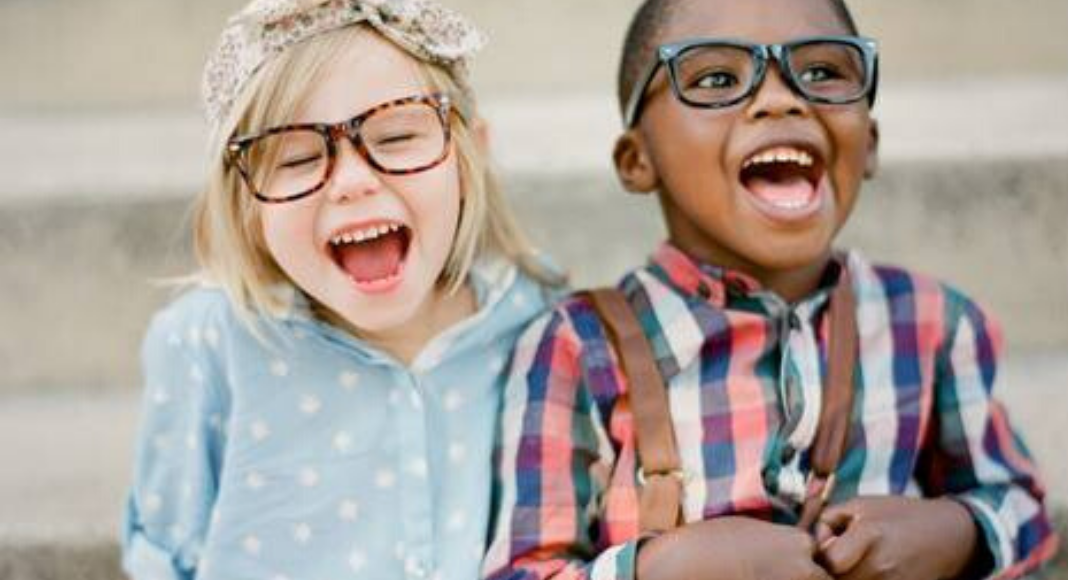
I stand at a loss of words to express the pain and anger and frustration I feel over what is happening in our country right now. In the span of two weeks, we saw video of Ahmaud Arbery, a black man out for a jog, being hunted down and murdered by men who thought he didn’t belong in their neighborhood; Christian Cooper, a bird watcher, accosted by a white woman, angry that he asked her to leash her dog, who then weaponized his skin color against him by lying to police that she was being attacked by an African-American man; and then we witnessed the murder of George Floyd at the hands of four Minneapolis police officers.
Yet, as badly as I feel, I cannot fathom the depth of pain and trauma black Americans feel right now.
I think many of us want to do better, to be allies to our black sisters and brothers and their children, and to support our non-black friends raising black children. One of the best ways I can think of is to raise children who aren’t racist. But…that’s probably not as easy as it sounds. We have to know where to start.
When I asked my 13-year old what advice he’d give to parents who want to raise kids who aren’t racists he said, “I don’t know…how about not be a racist yourself?” I think that kid is on to something.
So…where do we start?
First, we need to examine our own bias and acknowledge the inherent privilege associated with being white. I can already feel your skin crawling and see you fidgeting uncomfortably. Trust me when I say, I know that feeling. I grew up in a very diverse environment. I thought I understood race and recognized racism for the evil it is, but even as I did, I failed to see that just as the color of a black person’s skin disadvantaged them, my white skin gave me an advantage in this world. I was an adult before I recognized and accepted this. It doesn’t mean I should be ashamed or guilty – shame and guilt without change mean nothing. It does mean I have an obligation to use that advantage to speak up and stand up for others and to call out racism when I see it, and to fight against it however I can. It also means I need to fight against the systemic bias that awards privilege to whites.
There are many examples of systemic racism and I encourage you to read Open Wide Our Hearts: The Enduring Call to Love, a Pastoral Letter Against Racism at usccb.org. It includes many examples, but the ones that come to me off the top of my head are housing discrimination and the distinct differences in how black and white children are perceived in schools, both academically and behaviorally. Another great resource for unpacking all of this is Understanding Race and Privilege from the National Association of School Psychologists.
The next thing we need to do as white peacemakers, in the words of minster and author of Shalom Sistas, Osheta Moore, is to say, “I’m sorry. I’m listening. I’m learning about racism.” Her words are so powerful, but the most powerful of her words are “I’m listening.” Listen to your black friends. Listen to your co-workers, to your neighbors. And if you don’t have black friends or colleagues or neighbors, look for resources. Look to Black Twitter and other sources in media. Follow black leaders, teachers, preachers, and regular folks who share their experience. And just listen. Don’t try to argue because you’ve had a different experience in life. Don’t get defensive because you feel guilty. And don’t try to justify instances of personal or institutional racism. Simply listen and learn and do better.
I certainly know listening has changed me, given me a greater understanding of the black experience that isn’t purely academic. My first lesson came when I was five. My mom’s best friend was a woman named Mary. My mom and Mary worked together and shared life’s ups and downs the way all mamas do. One day, we were at their office picnic in Shelby Park in Nashville. This was in 1975 and while the women were setting up the food and the men were getting a grill going and setting up the horseshoes and other games; my mom and Mary sent Mary’s son Robert (Boo), who was about seven, and me off to play. When it was time to come back and eat, Boo and I ran toward our mothers’ holding hands. As soon as they saw us, both women came running toward us hollering for us to let go of each other. Rattled and confused, we both started crying, not understanding what we had done. That’s when Mary hugged us both and explained that “people don’t like it when black boys touch white girls” and that some people might even want to hurt Boo for holding my hand. I could not get my little brain around that idea for a long time, but Amy Cooper’s attack on Christian Cooper in Central Park last week reminded me of that and hurt my heart for all the black men and boys perceived as a threat to white women.
There have been so many other lessons…the college friend accused of threatening a professor just because she raised her voice. Colleagues who feel they have to moderate what they say and how they say it to avoid being perceived as an “angry black woman.” So many mama friends, black and white but raising black sons, who have to talk to their sons about how to act so they don’t appear threatening and what to do if someone threatens them. I hear their exhaustion. And I wish I could help carry their burden.
And the only way I know to do that, beyond listening and learning and acknowledging our privilege, is to take practical steps to raise kids who aren’t racist.
These are just a few things I know of that might help.
Talk to your kids about race. I saw a great quote on booksforlittles.com which has a great list of books about race to read to and with your kids. “Racism thrives in silence.” The author goes on to explain that the things we remain silent about are things we are ashamed of. From there, kids will intuit that if we don’t talk about the experience of being black or brown, it must be something to be ashamed of.
But we don’t just need to talk about racism or being black in the context of being a hardship. We need to highlight the brains and beauty and talent and accomplishments of black and brown people. Choose story books and age-appropriate biographies for you kids with black characters and about black heroes. When your child has to read a book for school, encourage them to choose books about black, Latinx, or Asian heroes and historical figures or fiction written by non-white authors. But don’t stop there. Watch movies with protagonists of all races. Watch theatrical performances or dance or other artistic performances by performers of all races. Take conscious action to let your kids see the humanity in all people.
Of course, even better than exposure to the arts for really seeing and getting to know people is knowing them in real life.
Work to create a diverse community for your kids. Choose to live in neighborhoods that aren’t all white and get involved with the community. Attend churches that have diverse congregations. Shop in stores and dine in restaurants owned by black and brown-skinned people. If you hold a leadership role in your community or in a community organization, invite people from all races to serve on your committees and to get involved, even if that means leaving your comfort zone and reaching out to people you don’t know.
Most importantly, send your kids to schools that aren’t all white.
I’m pretty sure nothing I did or said to my kids about race made as big of an impact on them as attending our Title 1 neighborhood school in Atlanta where they made friends (and so did I) who were black, white, Latinx, Asian, South Asian, Middle Eastern, Jewish, and from every socio-economic group. Even though our family has moved, we cherish the friendships we made at that school. My sons speak with love and respect for the black women and men who taught them there. We all have fabulous memories of visiting the homes of friends from other cultural backgrounds, eating and laughing with their families, and having it all just be a normal part of all our lives.
I understand education is a very personal choice for families, but I feel strongly that the relational and emotional intelligence developed through interactions with a diverse community are just as important as finding a school with great test scores.
Finally, I’d simply add, let your kids see you speak up against racism.
You don’t have to go out in the streets and march with a megaphone or shout from the rooftops. But you do need to stand up and speak up against racism and casual bias when you see it or hear it. When your uncle or your dad tells a racist joke, call him out and tell him it’s unacceptable. When your mother or your aunt or your best friend comments on a mixed-race couple, ask them what they mean. If they say races shouldn’t mix, let them know you don’t feel that way and that what they’re saying is racist. You don’t have to get angry to do it. Just be matter of fact. And let them know you won’t give space for racism in your presence and especially not in front of your kids. It takes practice, especially if you’re confronting someone you consider an authority figure. But you can do it! The Southern Poverty Law Center has a wonderful resource called Speak Up: Responding to Everyday Bigotry that can give you tips on how to address acts of racism when you see them.





















